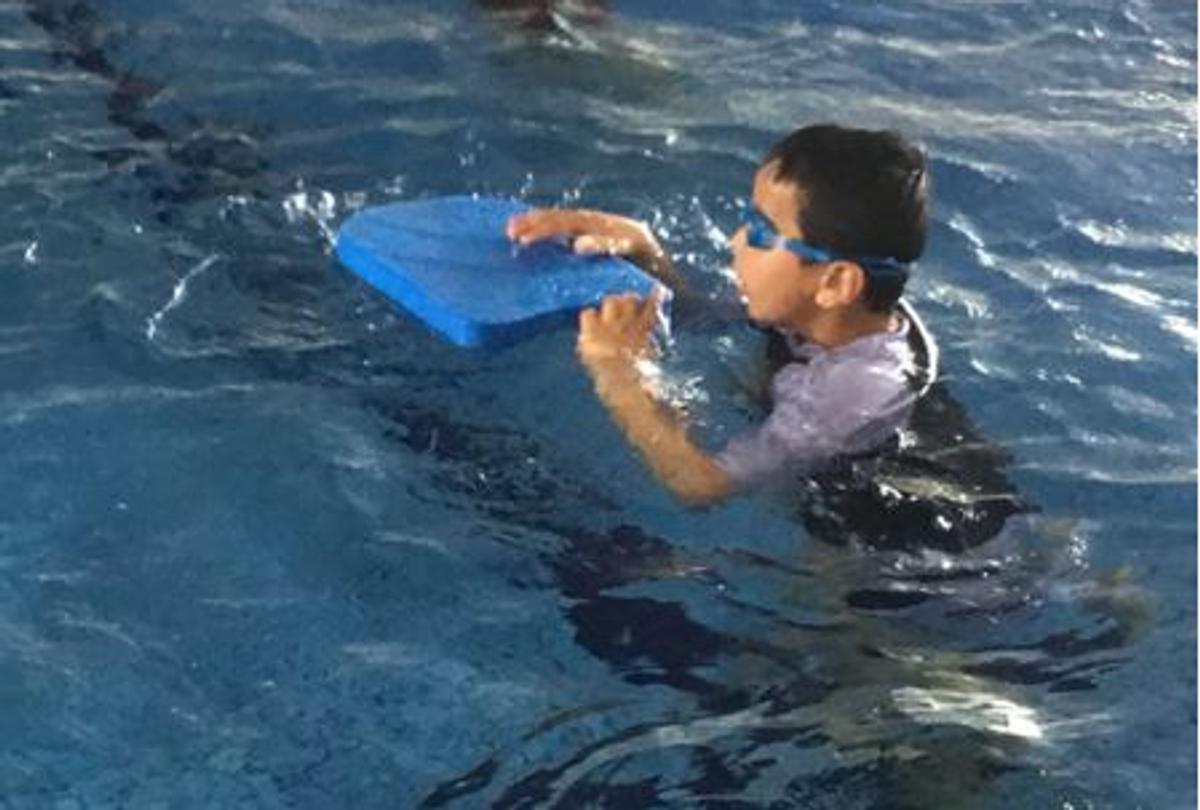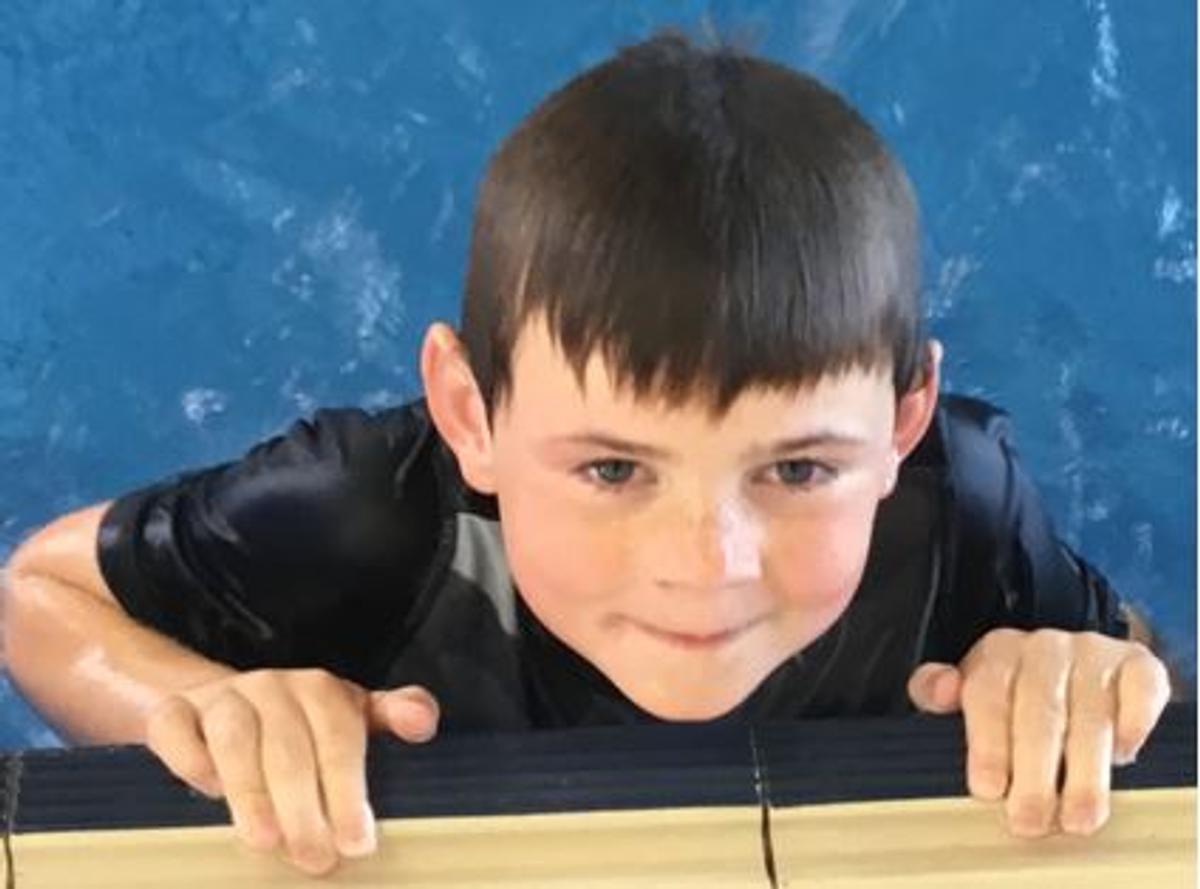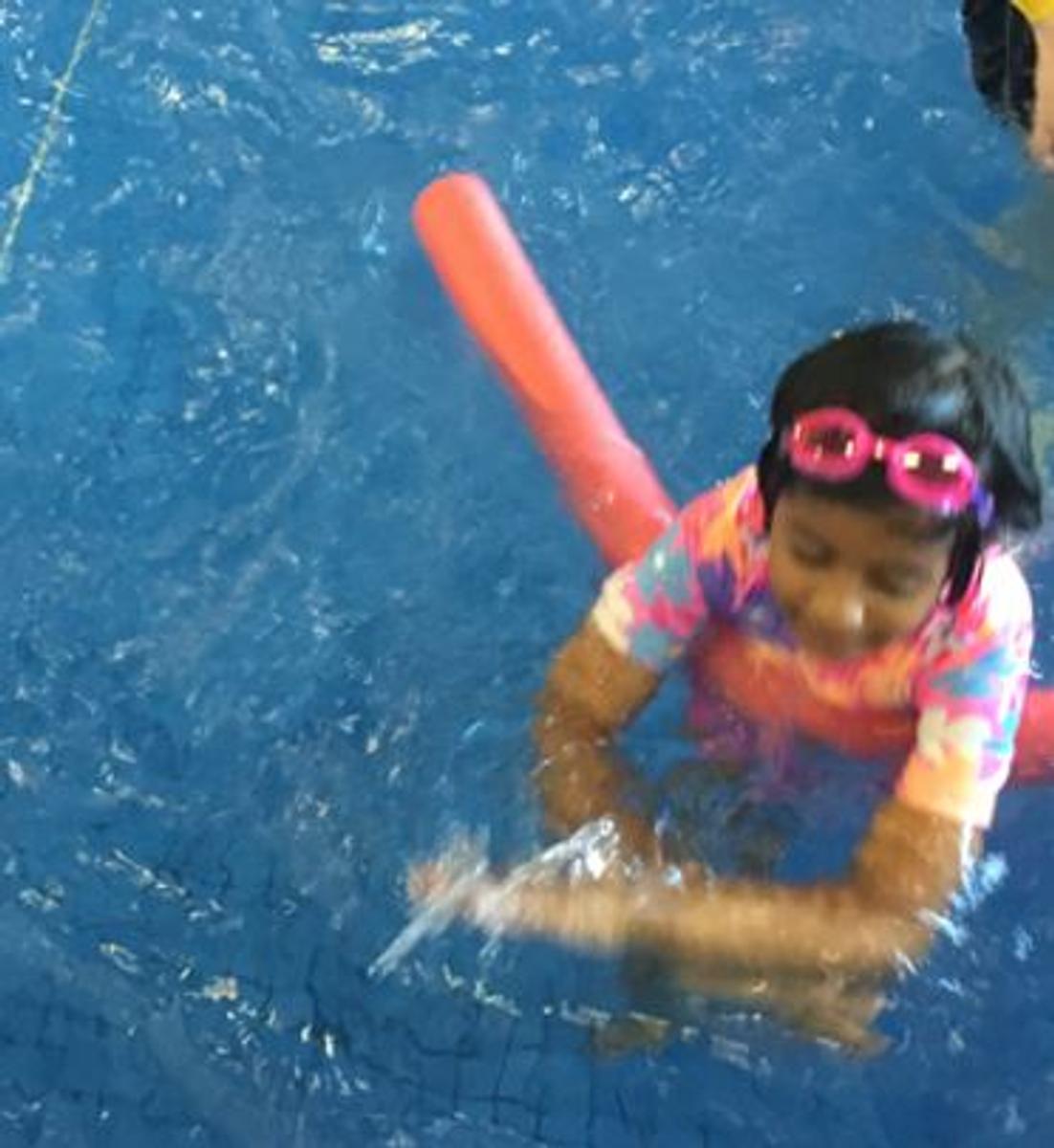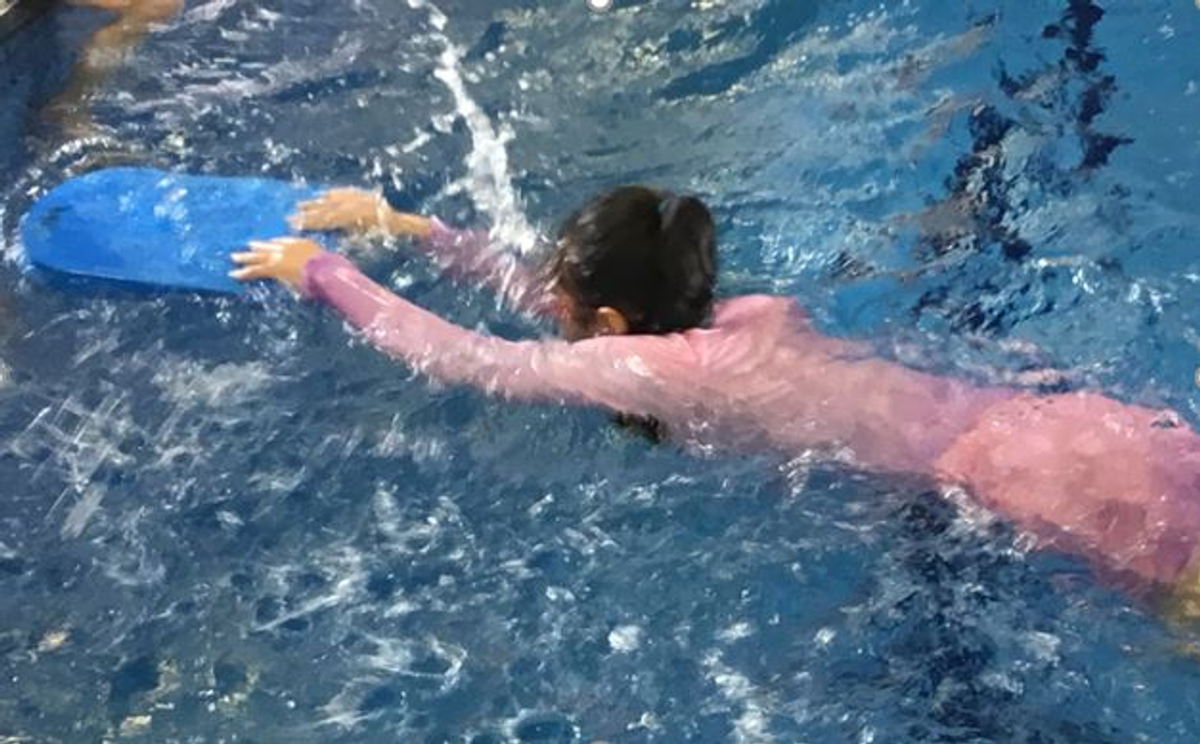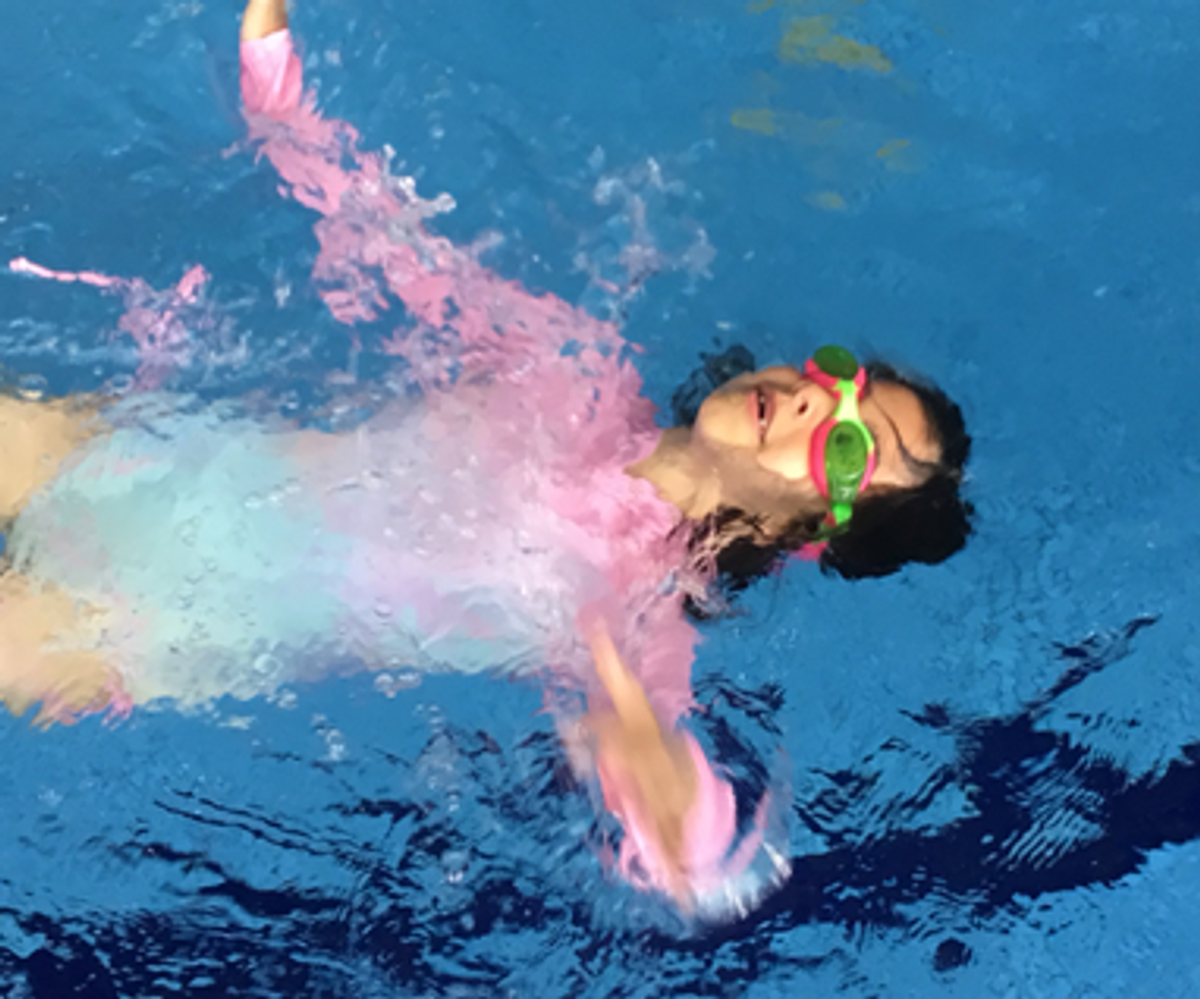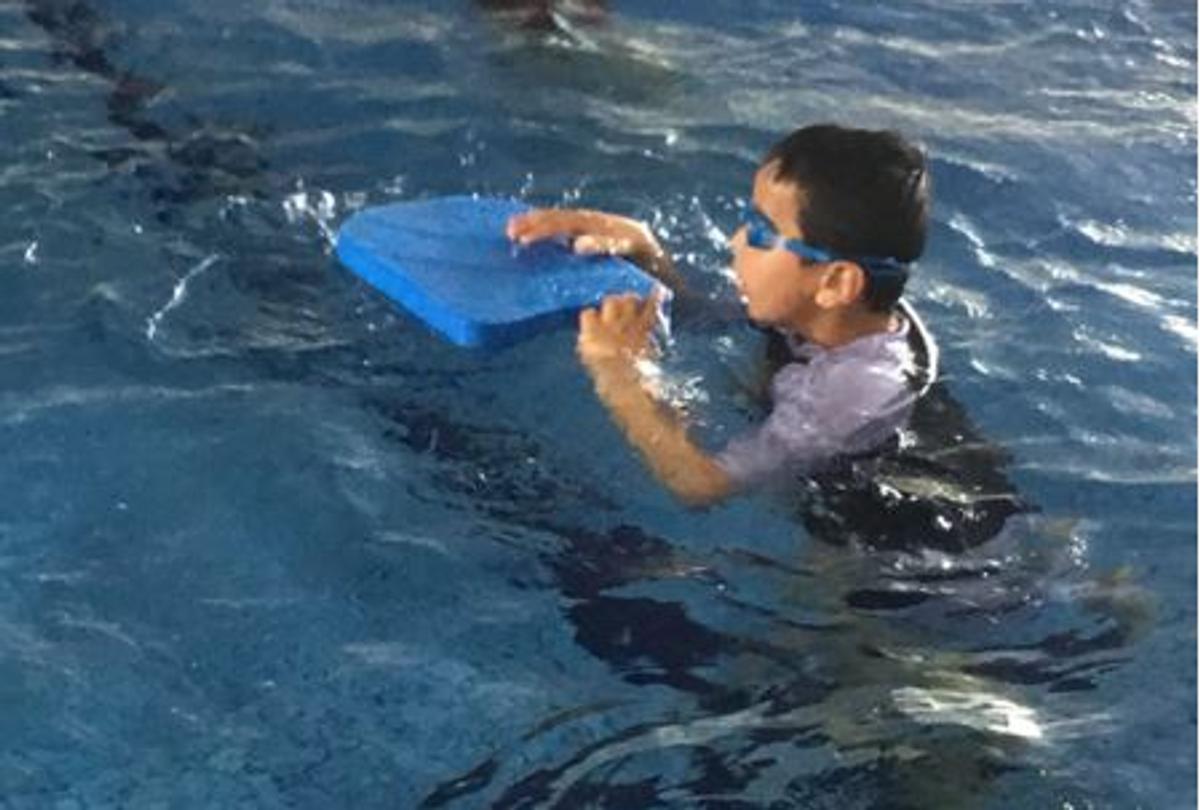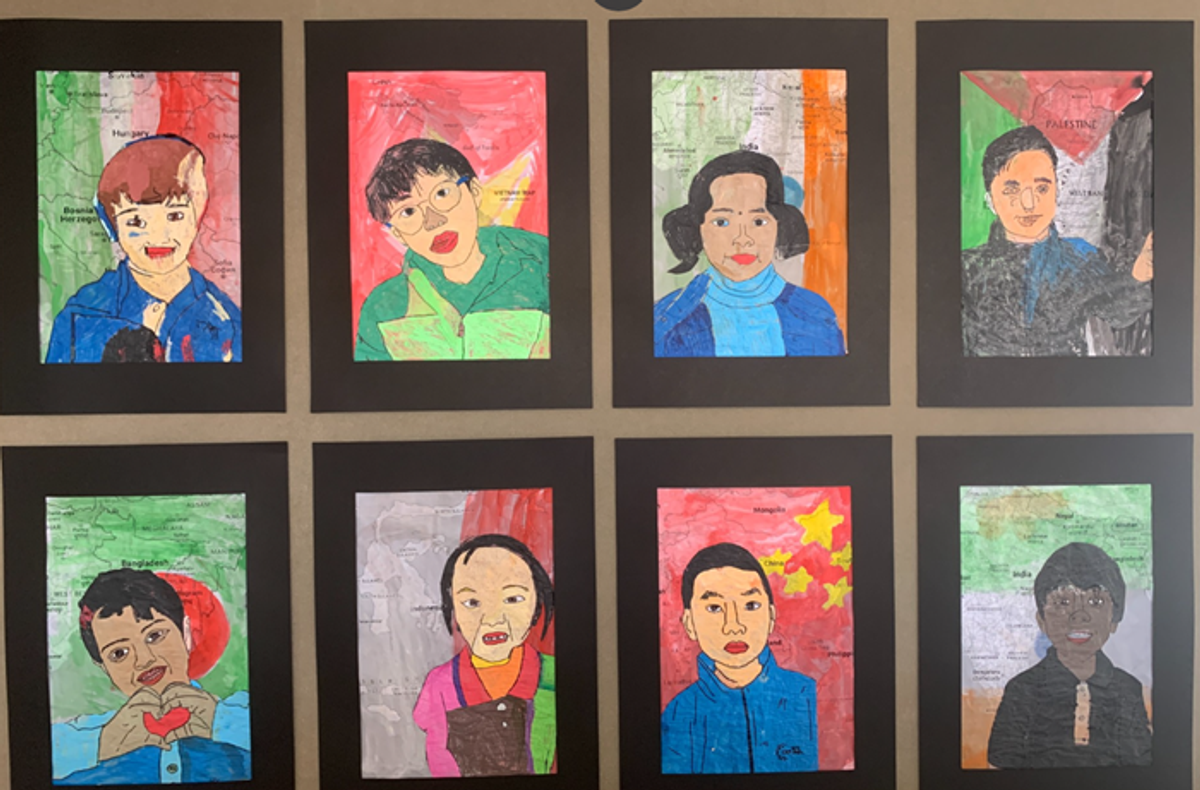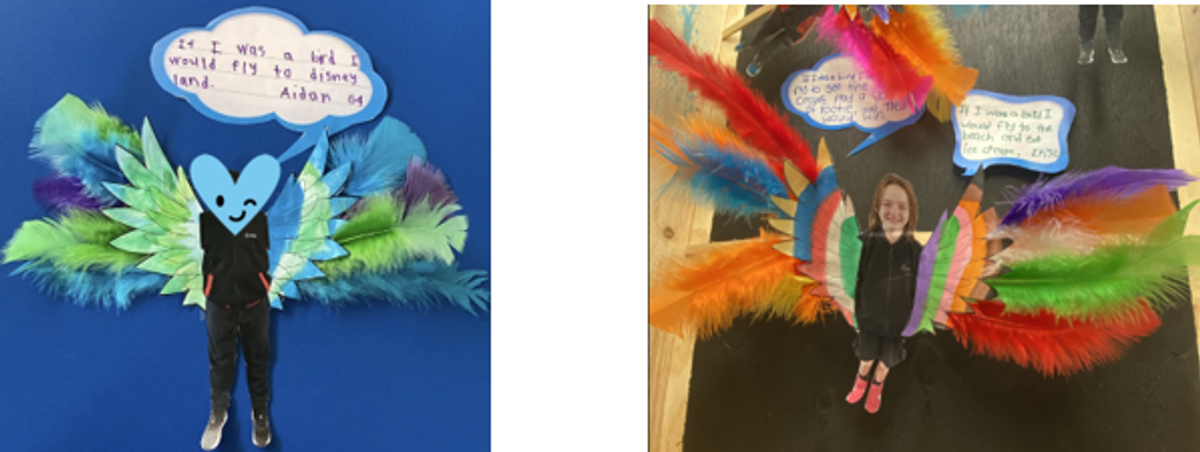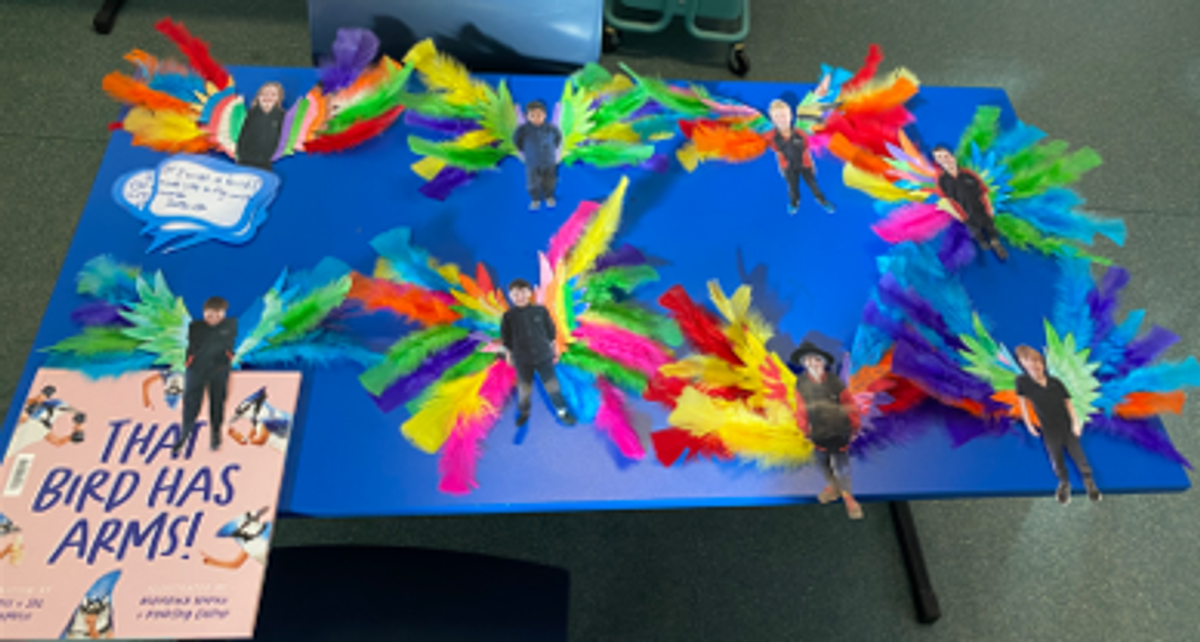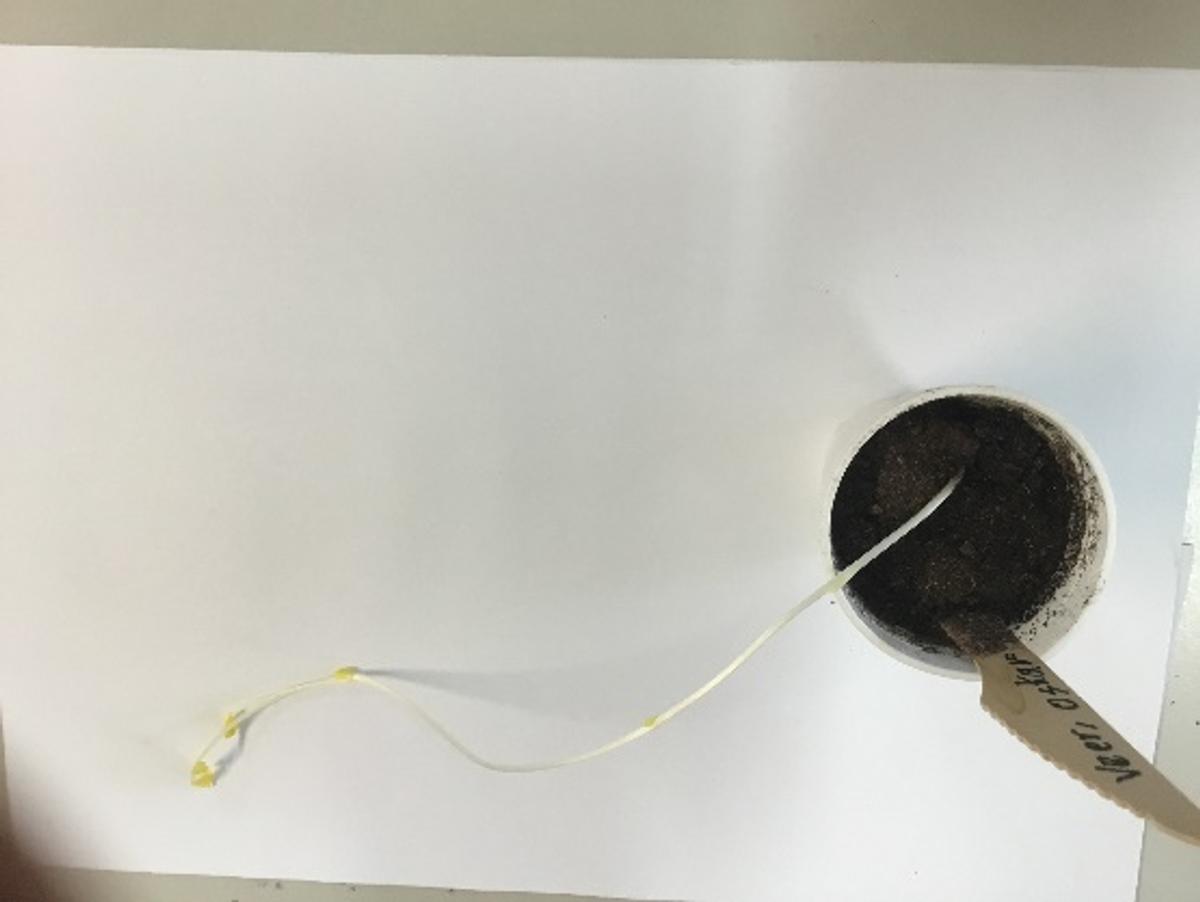Curriculum News
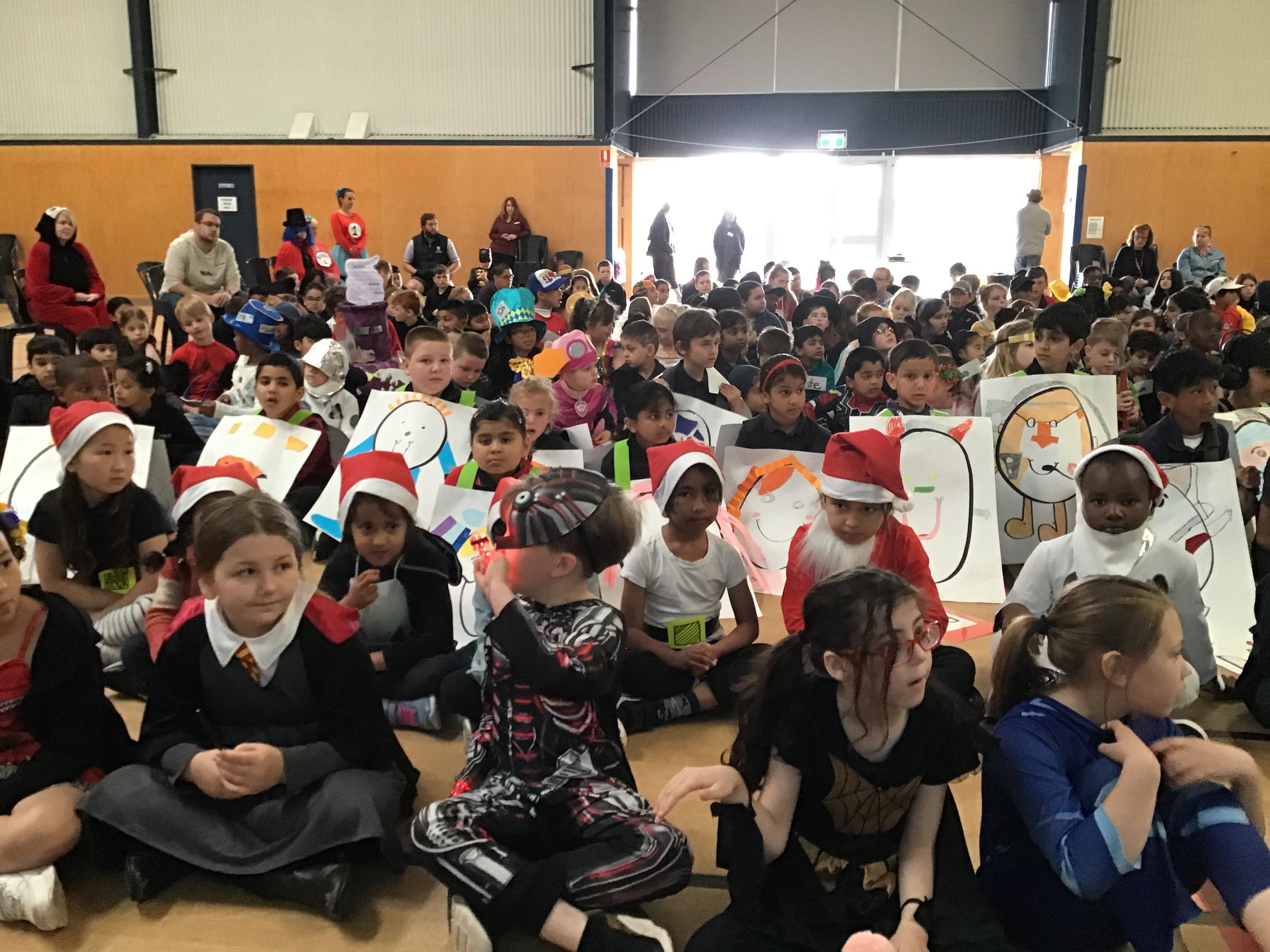
Water Safety Program
Many students recently attended the Water Safety Program as part of our Health and PE curriculum at Westminster College.
The Department for Education program included important water safety skills, such as entering and exiting the water safely, survival and rescue skills and how to make sound decisions about our own safety and the safety of others.
It was an amazing opportunity to work with other students from different classes and to become 'safer water users'. Living in a country with so many opportunities to swim in places such as rivers, dams, lakes, pools and oceans - having survival skills and knowledge is really important!
R2 (Junior Primary IELC)
In R2, the students are learning how to make food and write procedures. They have explored the concepts of 'whole' and 'parts of a whole' in mathematics. They have been preparing food during their daily 'fruit time' to consolidate their learning and apply it to a real-life setting. They have also worked on dividing their food into equal parts and ordering events according to the days of the week.
Y1 (Junior Primary IELC)
Y1 began the term by creating artwork that celebrated their identity and home country. They used tracing paper, paint pens, watercolour paints and printed maps to bring their work to life.
In Science, both Y1 and G1 have been exploring how to physically change materials. They have investigated paper recycling and learned to make their own recycled paper from classroom paper scraps. Next week, they will visit the Kesab Recycling Centre to see where waste goes and learn more about its journey after it is thrown in the bin.
In maths, students have been learning about 'time'. They are practising saying the 'days of the week and the months of the year' in English.
In literacy, students have continued to learn 'how to write procedures'. They created a procedure to explain 'how to make recycled paper' for their latest writing assignment.
G1 (IELC Year 1/2)
In G1, the students learned about 'physical change' in Science. This led the students to investigate 'how to recycle an item to create something new' and 'how it physically changes'. They learnt about the process of recycling and even made their recycled paper. They then used this process as their assessment piece of writing, and wrote a procedure for 'how to make recycled paper'. Next week, the students will go to the KESAB Education Centre to consolidate their learning.
R3 (midyear intake Receptions)
The students have been exploring Clovelly Park Primary School's 'core values, behaviour expectations and routines' this term.
In Maths, the students have learnt about 'patterns and ordering numbers'. They have enjoyed making patterns using manipulatives such as counters, beads and natural objects. Another engaging learning experience that the students enjoyed, was making giant caterpillars that show the 'order of numbers 1-10'.
The students explored the narrative story 'Jack and the Beanstalk' in literacy. To conclude the learning sequence, R3 made their own 'Jack and the Beanstalk' books to retell the story.
Recently, the students began their phonics program using the Department for Education's Literacy Guarantee Unit's Early Years' pilot program. We are learning our basic phonemes and graphemes and enjoying being able to read and write these.
R1 (Reception and Year One)
R1 has had a very busy Term 3! The students particularly enjoyed participating in the planned Book Week activities. Dressing up for the parade was a highlight. This term, another highlight for the students has been working with our 'artist-in-residence', Michelle, on unique self-portraits.
In literacy, the students have been focusing on 'personal response'. Using Mem Fox's books, students have discussed, drawn and written about a selection of her stories. They have been given opportunities to state their opinions about their favourite part of a story. They also shared their favourite book with peers and discussed the reasons 'why'. The students have also been focusing on 'sentence structure using correct punctuation and grammatical features'. In addition, they have been co-constructing 'super sentences' using photos as a prompt. The students will write their 'super sentences' during weeks 9 and 10.
In mathematics, the students have focused on 'statistics and probability'. Students have been 'collecting data' around various interests and topics, asking and answering questions, and 'recording and displaying data' in multiple ways. R1 continues to focus on numbers, including 'place value, skip counting, and addition'.
R5 (Reception and Year 1)
R5 has enjoyed Swimming Week and filled out a swimming journal to write a recount of their sessions.
In Science, the Year 1 students did an experiment on 'why we need two eyes to see', and the Receptions were testing out 'how toys move by pushing, pulling or both.'
The students have been matching analogue and digital clocks with the words 'o'clock', and as a challenge, they also matched 'half past' times during Maths.
During the students' phonics swaps with R1, the Receptions have consolidated their learning of the first common diagraphs like 'th, ch, sh, and ng', and the Year 1 students have been learning when to use the long vowel sounds, i.e. 'an alien, e equal, I spider, o open, and u emu'.
B2 (Year 2)
B2, in mathematics, this term has focused on 'collecting, recording, and interpreting data'. Students engaged in hands-on activities to 'gather data' and create picture and column graphs. This helped them understand 'how to present and analyse data visually'. Their focus now is 'measurement concepts using formal and informal units', providing students with practical experience in measuring objects.
In Science, the students have delved into the study of biological sciences with a particular emphasis on insects. Students explored various aspects of insect life, including their 'anatomy, behaviour, and habitats'. This investigation has been integrated into the class writing focus of information reports.
The literacy curriculum has focused on improving writing skills through the use of 'nouns, adjectives, verbs, and pronouns'. By incorporating these elements, students are learning to make their writing more engaging and descriptive. In addition to writing, B2 has maintained a strong emphasis on developing reading skills. Daily activities are designed to 'enhance fluency, reading rate, expression, and accuracy', ensuring that students are becoming more proficient and confident readers.
O2 (Reception - Year 2 Special Options' class)
In O2, the students are learning about Australian animals and building their vocabulary to describe their different features, 'behaviours, habitats, diets, and classifications'. In math, the students have focused on 'skip counting by 2s, 5s, and 10s', and are also exploring 'time and its duration'.
G2 (Year 3/4)
Recently, G2 has been concluding several units of work. In Mathematics, they have been 'using formal and informal methods to measure objects and spaces' inside and outside the classroom. Students have explored various 'measuring instruments, including trundle wheels, rulers, balance scales, and measuring jugs'.
In Science, G2 replicated the process by which 'flowers disperse their seeds and created detailed displays on the life cycles of various animals'. In English, the students are nearing the completion of their class novel, 'The Iron Man'. The students will soon be writing reflections on the story.
G3 (Year 3/4)
Recently, G3 has been concluding several units of work. In Mathematics, they have been using 'formal and informal methods to measure objects and spaces' inside and outside the classroom. Students have explored a range of 'measuring instruments', including creating a meter square (out of paper) to measure items in the class and outside (bag lockers, carpet rug, four square court), trundle wheels to measure the length of a giant squid (14m!), rulers, balance scales, and measuring jugs - the big water containers in the staff room can hold almost 13L of water if filled right to the top!
In Science, the students have been learning 'how to identify characteristics of living things'. Discussions like "Is hair a 'living thing'?", "At what point do we say something is not living? ( e.g. leaves falling off trees)" and "Do metal train tracks move and expand in the heat? Does this mean they are a living thing?" have arisen. We completed a nature walk around the school, categorising things we saw as living and non-living.
In literacy, we are completing an information report about an animal the students have chosen. The focus is on 'using research/facts, creating full sentences, and writing longer, more descriptive paragraphs'.
G4 ( Year 3/4/5/6 Special Options)
It has been a term of engaging learning experiences for G4. During literacy, the students in G4 are learning to write 'super sentences'. They have learnt about 'what makes a super sentence that will entertain or inform the audience'. The students also had a magnificent time during Book Week. They read a book about a 'bird having arms' and then wrote about 'what they would do if they were a human with wings'.
In maths, the students explored 'statistics and probability by analysing data related to the Olympics, such as medal counts and event outcomes'. The students 'collected, organised, and interpreted data in everyday contexts, including sports and games'.
They are also currently learning about 'healthy living,' where they investigate different types of 'physical activity, healthy food choices, and the benefits of a healthy lifestyle.' Furthermore, students are exploring 'how people participate in physical activities'.
Additionally, G4 is learning about 'trusting relationships, identifying traits of trustworthy people, and differentiating between safe and unsafe secrets.' Through these lessons, students are encouraged to communicate with trusted adults about uncomfortable or situations where they feel unsafe.
Y3 ( Middle and Upper Primary IELC)
Y3 has been diving into some exciting, hands-on learning experiences this term. The students learn how to write a procedure in literacy by exploring 'real-life skills'. Students engage in activities like cooking and science experiments to 'learn to follow and create step-by-step instructions'.
One highlight this term for Y3 has been learning 'how to grow a plant, understanding its needs, and studying the plant life cycle'.
In Maths, the class focus is on 'practical applications of key concepts'. They are mastering 'fractions and exploring their role in everyday life'. The students are also learning to 'read an analogue clock, convert times into a 24-hour format, and perform time-based calculations'.
It's been a wonderful term connecting 'classroom learning to the world around us'.
Y5 ( Middle and Upper Primary IELC)
The students have been doing exciting things in Y5 this term. Last week, the students went swimming and learned about 'keeping themselves safe around water'. After the experience, Y5 made E-books about their Swimming Week using the Book Creator App. This activity helps the students build their 'reading and writing skills, vocabulary and how to use technology to publish and share their work'.
The garden has also been a big part of Y5's learning this term. We have gained many 'skills, scientific knowledge and vocabulary' through this topic while growing 'broad beans'. By working scientifically, we set up experiments to discover 'what conditions plants need to grow' and observed some interesting results.
For example, the bean seed that didn't have light but only had air, water and soil grew the fastest and longest, and the leaves were white. WOW!! From this, the students concluded that it was trying to survive by growing fast and trying to find a light source to continue growing. When we brought it out into the light, it began to turn green, so we concluded that it quickly got energy from the light and started to grow through photosynthesis. We thought that the world of nature is AMAZING !!!!
Y5 used our maths topic of 'measurement' to 'measure and record the height of our plants and learn how to use graphs to display our information'. We were learning maths with a real purpose! We have had a very busy and fantastic 3rd term in Y5.
Y6 and Y7 (Year 5/6)
The year 5/6’s in Y6 and Y7 have had an exciting term, with Y7 warmly welcoming their new teacher, Mrs. M.
Their genre focus this term has been on poetry, with students learning various 'poetic techniques' and working towards writing their own 'free verse poems'. They have been studying Sister Heart by Sally Morgan, which has enriched their understanding of 'poetry through text response tasks'.
Students also enjoyed the swimming program at Westminster Swim, which has been a highlight of the term.
Looking forward, preparations for the upcoming camp at Monarto Zoo are underway, promising adventure and team-building fun.
Overall, it's been a term full of learning, creativity, and memorable experiences!
Specialist Subjects
HASS
In HASS, the receptions and year one's have been learning about 'maps and map features'. They have worked on 'creating a class town map using shapes'. Each student got to add a shape to the map and contribute to developing a shared name. After they made the map, they took a photo of it and blew it up on the big screen so that students could individually draw a copy of the map. The focus of the activity was on 'creating map keys'. The students had to record what each shape meant on the map key so that they could read their maps.
Performing Arts
During performing arts, the middle and upper primary classes have been using Garage Band to explore elements of digital music production.
Lower primary classes have investigated rhythm and melody by dancing and playing simple melodic rhythms on the chime bars and xylophones.
Wakakirri and the Festival of Music has 'wrapped up', and all students performed exceptionally well and made our school proud.
Moving forward, all classes will begin focussing on their end-of-year concert item.
Indonesian
In Indonesian, junior primary classes have been focusing on 'colours, numbers and names of Indonesian animals'. For the final weeks of term students are 'hearing and responding in various ways to a traditional story from Indonesia' that involves some of the animals we have been learning about.
Classes in middle primary have been learning about Indonesian animals through reading information reports. G2 and G3 students are now working on writing their own short information reports in Indonesian and English about an 'Indonesian animal of their choice', and G4 and Y5 students will do this as a whole class activity.
Upper primary classes have been finding out about 'different issues that affect the environment in Indonesia'. Students developed some questions that we sent to our Indonesian partner school, Al Syukro Universal Elementary School, to find out what 'environmental issues affect them', and are looking forward to hearing back from them.
Health
In Health lessons, the junior primary classes have learned about the 'five food groups and the difference between every day and sometimes foods'. We have also learnt about 'hygiene, in particular proper handwashing and dental hygiene'.
The year 3/4 classes have been focusing on the 'benefits of physical activity, and strategies we can use to be more active in our everyday lives'. They have also revisited the '5 food groups' and are learning about the 'nutritional benefits of each group'.
The year 5/6s I’ve just finished a project where they 'designed their own fitness circuit, aimed at helping them to reach their personal fitness goals'. They did a great job!
Physical Education
Reception to Year 2: This term, students have continued to develop and apply fundamental movement skills through various games and activities. They have practised basic skills in net and wall games, while also discussing 'how rules help to make play fair and inclusive'. Students have worked cooperatively, sharing equipment during play and participating in minor games.
Year 3 and 4: This term, students have been participating in different types of exercises through 'circuit training', where they are encouraged to track their 'personal progress'. Additionally, they have been creating fun and engaging games that incorporate elements of fitness. Students have further developed their understanding and mastery of the 'fundamental skills required for Volleyball'.
Year 5 and 6: This term, students have engaged in 'circuit training exercises', focusing on the 'benefits of physical activity'. They have also created their own circuits to meet specific goals and needs. In addition, they are practising and refining the movement skills necessary to play Volleyball effectively.
Intervention - Ms Jess, Ms Shae and Ms Simone
To help every student do their best in reading and writing, we offer extra literacy sessions for those from Reception to Year 6 who need more support, based on their DIBELS test results. These sessions are either one-on-one or in small groups, led by our dedicated team: Mrs. Simone, Mrs. Shae, and Mrs. Jess.
Our lessons are designed to target the specific areas identified as requiring improvement. This term:
- Mrs. Shae is working with Reception to Year 1 students on phonemic awareness (understanding sounds in words).
- Mrs. Simone and Mrs. Jess are helping Year 2 to Year 6 students improve their reading fluency (reading speed and accuracy).
These targeted sessions aim to give each student the support they need to become confident readers and writers.
